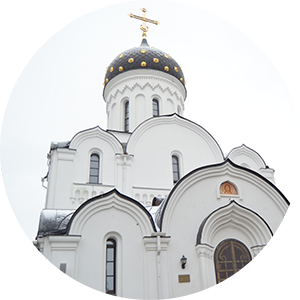Tradition
is certainly not in Orthodoxy "how we have always done things."
Tradition is the living active stream of revelation and witness imparted by the
Spirit to the Church and handed down from generation to generation. It is
continually unfolding its potential from the creativity of God and will do so
until the End of all things. Tradition in this respect must be distinguished
from traditions which are simply ways of doing things particular to different
cultures and times. These are useful in themselves but nothing to do with
revelation which is primary and endures in all places and for all times.
 In some
Christian churches Tradition is thought to be a parallel source of authority in
the Church to the Scriptures. In other churches Tradition is barely recognised
but rather Scripture alone is emphasised. In the first view Tradition and
Scripture do not necessarily inform each other. Indeed many claim that in
Christian history they have frequently drifted apart; which partly explains why
other churches have dropped Tradition altogether. This is no solution as it
flies in the face of history, the facts about how we came to receive the
Scriptures in the first place.
In some
Christian churches Tradition is thought to be a parallel source of authority in
the Church to the Scriptures. In other churches Tradition is barely recognised
but rather Scripture alone is emphasised. In the first view Tradition and
Scripture do not necessarily inform each other. Indeed many claim that in
Christian history they have frequently drifted apart; which partly explains why
other churches have dropped Tradition altogether. This is no solution as it
flies in the face of history, the facts about how we came to receive the
Scriptures in the first place.
For a
long time there was no single accepted collection of New Testament writings, for
over 300 years in fact. The Old Testament was probably the only written source
in use by Christians for the first 30 years after the resurrection. What Jesus
said and did was collectively committed to memory by the churches across the
eastern Mediterranean but each church had a different part of the oral
tradition and it was the bishops’ responsibility to collect together an authoritative
collection or canon.
The point
is that (oral) Tradition preceded the writing down of Scripture by at least a
generation, the settling of the canon by more than 300 years. Scripture was
identified as the supremely authoritative part of Tradition, but it was and is
part of Tradition. The remainder of Tradition comprises the Fathers, the
Ecumenical Councils and their credal definitions, the lives and writings of the
saints.
When some
Christian churches try and interpret the Scriptures apart from Tradition, this
always fails. Interpretations multiply … and so do the denominations that
convince themselves that they have the right interpretation of the Scriptures.
We shall examine how this has profoundly affected Church history in the next
session.
There
remains finally the issue as to whether or not Tradition can take the Church in
a different direction from an original position. The Orthodox answer to this for matters of
faith is 'most certainly not.' God
speaks truly and consistently on such matters.
There are other questions however where Christian principles have to be
applied to new situations or where it takes time for a Christian witness to
take hold in a society, for example, respectively, usury and slavery. These can often cause disagreement, even
contention in the Church if the new situation is not analysed carefully or where
insufficient attention is paid to an applicable and enduring Christian
principle.
Notwithstanding
any pressure from external sources, it is vital in these circumstances that the
Church reflect carefully and prayerfully together and wait on God without hasty
or ill considered decision making. This
may cause consternation in some quarters that the Church is not "moving
with the times." This is not,
however, how the Church considers any issue.
She refuses to be pushed and cajoled by social trends. As the Anglican Dean William Inge once said:-
"whoever marries the spirit of this age will find himself a widower in the
next." In all these concerns we
cannot doubt that God will enlighten us if we follow faithfully the well known
and well worn patterns of discernment enshrined in Scripture and Tradition.
God
reveals truth concerning His ways in history by Tradition of which Scripture is
the distinctive and authoritative core.


















CONVERSATION